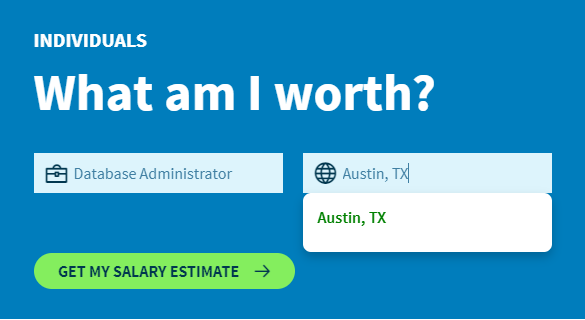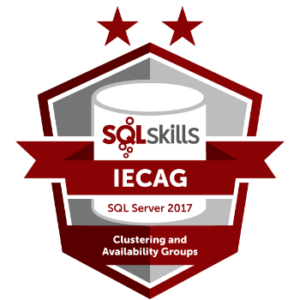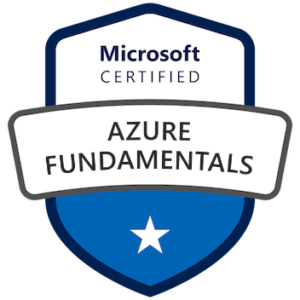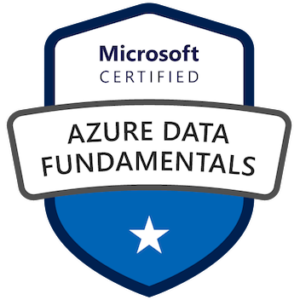6 Ways to Advance Your IT Career
The “Great Resignation” is upon us, or so the internet tells us. People want better working conditions, better wages, just… better. Large swaths of people are trying to advance their careers. Here are 6 ways to advance your IT career.
- Accept that long term loyalty to a small to mid-sized company is likely keeping your salary low and limiting opportunities.
- Use the wizards at salary.com to plug in the job titles you want and discover what you should be making.
- Focus on building technical skills, especially early in your career
- Work on your interviewing skills
- Start blogging
- Start presenting
How to Advance Your IT Career: Here is How I did It
- I realized that long term loyalty to my small to mid-sized company was keeping my salary low.
Career growth opportunities were limited. The company I was in when I launched my IT career probably had 200-300 people in their corporate office and there were 8-12 local offices that had maybe 5-10 people working out of each of them. So, less than 500 employees. We weren’t big.
There were some opportunities for growing your career there, but those opportunities to be promoted to a new or different role came around once every 3-5 years, and sometimes less frequently than that. There was maybe one more title change in sight so upward mobility was now limited.
I had been in relatively the same role for 4 years. Annual increases were my primary means of increasing my salary.
Also, in my scenario, it didn’t seem like we were exactly swimming in money. These two things combined to keep my career opportunities limited and my wages below average.
“I needed to change jobs if I was going to advance.”
I had been at this company about 9 years already before I started looking for other work. Loyalty wasn’t going to help my career. I needed to change jobs if I was going to advance.
- I used the wizards at salary.com to plug in the job titles I wanted and discover what I should be making.
You can use the site to compare different job titles to one another in terms of experience generally required, job descriptions, and other details.Below is some data for Austin, TX for Database Administrator
Sample DBA Salary Information - Austin TX
| Title | AVG Years Experience | Low End Salary Yearly | High End Salary Yearly | Median Salary Yearly |
|---|---|---|---|---|
| DBA I | 0-2 | 52000 | 87000 | 67000 |
| DBA II | 2-4 | 71000 | 118000 | 94000 |
| DBA III | 4-6 | 95000 | 140000 | 118000 |
| DBA IV | 7+ | 109000 | 152000 | 131000 |
Once I had revelation #1 above and saw how much I was below the average salary, I was fairly motivated to make an employment change. That first job change resulted in a 10% increase in my salary!
- I spent the better part of 2 years building technical skills.
Classes at a university training center
There were two parts to this approach. First, I took IT classes at a local education and training center. To be clear, these were NOT boot camps. In my case I was focused on database technology, but there were and still are, certificates for programming and web development. These were generally 1 -2 day classes offered through my state university. They cost anywhere from $300-$600. My employer was reimbursing me the cost of the classes.
They involved lectures on IT topics paired with in-class labs where we would “do the stuff” that was just discussed. By doing this, I took enough courses to earn a Database Technology certificate. I could be trained and gain experience on database technology rapidly in a single 1 or 2 day course.
Regular self study
Second, I would also typically spend 1.5-2 hours of self-study every night after work Mon-Thur. On Sat/Sun I would study usually 3-4 hours each day.
I did both of these approaches for the better part of two years. This all culminated in my first Microsoft Certification in May 2013. To be clear, the goal in all of this was to learn new skills. Later, I focused on the certification as a means of learning specific new skills and knowledge that would help me earn the certification. My thought was that, alongside my resume, the certification would help demonstrate knowledge and possibly help open a few doors early on in my career.
Because of the classes and the extra work after hours, I was able to handle more and more complicated scenarios at my job. That was, after all, the real goal.
- I worked on my interviewing skills.
Reading blog posts and watching videos about interviewing became a regular habit. I created a Word doc of questions I wanted to ask potential employers during an interview. The interview was as much for me as it was for the employer. Interviewing the potential employer to find out what their IT environment is like, what the IT team is like and what the company mindset is about certain things, are critical parts of you assessing the employer.
Now that I’ve been in IT officially since 2010 and officially a DBA since 2014, here are the next steps I’m taking to advance my career right now.
5. I started blogging.
Once you have even a year or two of experience, blogging can be a great way to grow your career. If you’ve solved a few work problems in the 1-2 years you have been in your career, and I’m sure you have, then you have something to share with others.
Providing good technical information on how to solve a problem not only helps you remember and create a reference for you later, but forces you to learn more about the topic so that you can explain it to others. Thus, blogging is a great learning tool for you as well as an opportunity to get your name out into your technical community.
As you consistently post material, you can become known as the “go to” person for technology “x”. Then, when people want to know about technology “x” they find and read your blog posts and refer other people to your blog. This sort of activity can open doors for you professionally.
For example, Anthony Nocentino is well known for talking about Kubernetes. Brent Ozar and Erik Darling are synonymous with performance tuning. Hugo Kornelius is known for his instruction on SQL Server execution plans. Erin Stellato is known for many things, but most recently she has focused on the use of Query Store in SQL Server. SQL Server Statistics is strongly associated with Kimberley Tripp.
You can get started blogging for free using WordPress, or Weebly. There are probably other free options as well.
6. I started presenting.
Back in July of 2020 I gave my first technical presentation outside the walls of my company. I am a co-organizer for a SQL Server Meetup. A speaker for one of our up-coming sessions had a conflict and had to cancel. There was about a week to find a speaker and so I decided that speaker would be me.
I put together a presentation called “Modern SQL Server Features That Make Life Better.” I presented it to my own user group and one other user group. Then I was accepted as a speaker to New Stars of Data. That event has opened up two more opportunities for me and I’m pursuing other opportunities through the features at Sessionize. They have a feature called “Discover Events” that allows you to see upcoming speaking opportunities.
Much like blogging, when presenting you have to learn something fairly well so that you can confidently present the information. Asa result, you build your reputation as an authority on your topic. Also, presenting gets your face and name in front of people in a way that even blogging doesn’t. When presenting, people can ask you questions in real time about your topic and get to know you a bit as they listen to you or watch you present. They get a real life sense of who you are. they also get a feel for your level of expertise and you can build a good reputation for yourself, all the while helping other people learn.
Next Steps To Take
- Figure out which of the 6 steps you need to take to move your career forward and do it.
- Leave me a comment on this post to share which step you’re going to take or message me on Twitter with your plan. Sharing your next step with others reinforces your commitment.






